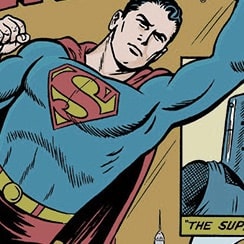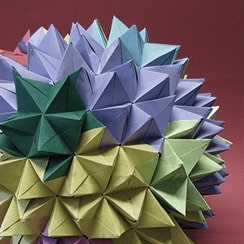Essayer OR - Gratuit
Contemporary Literary Review India - May 2022

Passez à l'illimité avec Magzter GOLD
Lire Contemporary Literary Review India avec plus de 9 000 autres magazines et journaux avec un seul abonnement
Voir le catalogueAbonnez-vous uniquement à Contemporary Literary Review India
Annulez à tout moment.
(Aucun engagement) ⓘSi vous n'êtes pas satisfait de votre abonnement, vous pouvez nous contacter par e-mail à help@magzter.com dans les 7 jours suivant la date de début de l'abonnement pour obtenir un remboursement complet. Sans poser de questions, promis ! (Remarque : Non applicable aux achats à l'unité)
Abonnement numérique
Accès instantané ⓘAbonnez-vous maintenant pour commencer instantanément à lire sur le site Web de Magzter, les applications iOS Android et Amazon.
Vérifié Sécurisé
paiement ⓘMagzter est un marchand Stripe vérifié.
Dans ce numéro
CLRI May 2022: Vol. 9, No. 2 brings to you a beautiful collection of RESEARCH PAPERS by Dr. A. Arun Daves, M. Sakkthi Shalini & Dr. Marie Josephine Aruna, Shivanshie Garg, Shubham Joshi, Soumita Mitra, Tanya Lohan; STORIES by G Venkatesh, Farzana Quader, Madan Sarma, Padmaja Sriram, Saligrama K. Aithal, Saranyan BV; POEMS by Debottam Saha, Chaitali Sengupta, Giti Tyagi, Rajamouly Katta, Dr. Romi Jain, Sandeep Kumar Mishra, Shuvam Dewanjee, Shruti Agarwal, Stephen Lefebure; BOOK REVIEWS on Mohamed Thaver’s “In Plain Sight” by Shridhar Naik, and Ravi Gowswami’s FOILED: THE ENEMY’S PLAN by Dr Anmol.
Contemporary Literary Review India Description:
Contemporary Literary Review India (CLRI) is a literary journal in English and publishes a wide variety of creative pieces including poems, stories, research papers (literary criticism), book reviews, film reviews, essays, arts, and photography of the best quality of the time from around the world. CLRI is one of the leading journals in India and attracts a wide audience each month.
Numéros récents

May 2025

February 2025

August 2024

May 2024

February 2024

November 2023

August 2023

May 2023

February 2023

November 2022

August 2022

February 2022

November 2021

August 2021

May 2021

February 2021

November 2020

August 2020

May 2020

February 2020

November 2019

August 2019

May 2019

February 2019

November 2018

August 2018

May 2018

February 2018

November 2017
Titres connexes

The Boy on the Burning Deck

Et tu Brut

Sherlock Holmes Stories 1

Humour Stories

Moral Stories

Priya's Shakti Comic Book

Detective Stories

Science Fiction Stories

How to Develop Self-Confidence & Influence People By Public Speaking

Interesting Stories To Learn Proverbs

Ghost Stories

The Adventure of Tom Sawyer

The Story of My Experiments with Truth

A Christmas Carol

Curiosity is the Way to Go

Sherlock Holmes Stories 2

Terror Stories

Animal Farm

Alexander The Great

Super Natural Stories

The Odyssey

Bhirgu Shmhita

Humourous Middles

The Haunted Forest

Sherlock Holmes Stories 3

The Autobiography of Benjamin Franklin

A Journey to the Centre of the Earth

Around the World in 80 Days

Treasure Island

Hard Times
Catégories populaires

Affaires

Art de vivre

Actualités

Divertissements

Journaux

Maison et Jardin

Mode

Autos, Motos et Véhicules

Intérêt des hommes

Magazines pour hommes

Célébrités

Santé

Jeunesse

Presse féminine

Éducation

Bandes dessinées

Informatique et Mobiles

Art

Sports

Voyage et Plein air

Technologie

Photographie

Science
